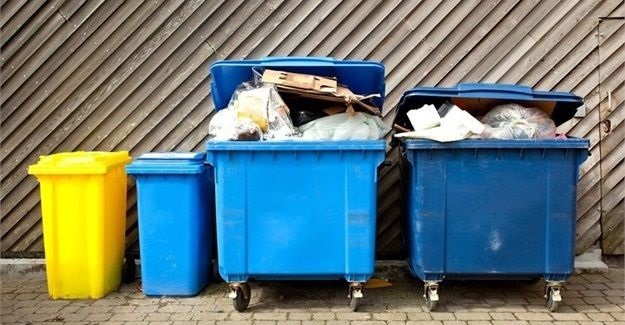Owing to the tourism and hospitality industries positive contribution to economies across the globe, it has become essential for hotels and business to take the necessary steps to implementing sustainable programmes to manage waste management.

© Vichaya Kiatying-Angsulee – 123RF.com
Historically, waste management in South Africa has focused mainly on technologies such as landfilling (for general and hazardous waste) and incineration (for medical waste).
With the introduction of the National Environmental Management Act (No. 107 of 1998) (NEMA), whose purpose it is to give effect to Section 24 of the Constitution – ‘to secure an environment that is not harmful to the health and well-being of the people of South Africa’ – and the National Environment Management: Waste Act (No. 59 of 2008) (NEM:WA), which aims to apply the principles of the waste hierarchy, waste management in South Africa has evolved to include additional requirements such as waste minimisation and recycling.
Verde Hotels, for example, is a sustainable property development company, whose holistic approach to developing environmentally conscious properties is making its mark with significant, positive results around waste minimisation and management strategies and processes. Dawie Meiring, group systems and sustainability manager at Verde Hotels, says, “Our primary objective is to ensure that the properties we develop and operate have systems in place to minimise the consumption of natural resources, avoid and lower the generation of waste, reduce, reuse, recycle and recover waste where possible, and, as a last resort, treat and safely dispose of waste.”
Educating hotel guests
It is also important to inform, educate and get the buy-in of staff, stakeholders, guests and the community to support and sustain environmental initiatives at ground level.
General manager, Lindy Meiring says that at Hotel Verde Cape Town Airport, for example: "All our staff undergo sustainability training with the hotel’s eco team, the Green Guardians, so they are up to speed on all things sustainable."
The hotel actions and encourages responsible procurement, buys in bulk and uses eco-friendly alternatives; they bottle their own water in reusable bottles and promote operations that minimize waste in general. “We have also installed split bins in all 145 rooms and at strategic points throughout the hotel along with educational signage and green tips - our guests are rewarded with a unique in-house currency called ‘Verdinos’ when they participate incorrectly using the bins or any of the hotel’s other green initiatives."
To bolster in-house efforts it is a good idea for hotels to align themselves with waste contractors who understand the complexities of waste management, who comply with environmental legislation and are able to offer advice on the most environmentally friendly and cost-efficient methods of disposal. It is good to note that there are more than 200 waste service providers operating in the Western Cape alone, across the full value chain, i.e. collection, transportation, disposal, recycling, sorting, storage and cleaning.
The importance of waste management
Leslie van Zyl, commercial operation manager at Waste Plan says, "We sort and recycle as much as possible before disposing of only the minimum waste to landfill."
Zero to Land Fill Organics is a company which provides training, educational material and separation systems for the setting up of organic waste separation programmes to business, as well as a service to collect and compost source-separated food waste, paper towel (from bathrooms) and garden waste. Managing director Melanie Jones emphasises the importance of recycling organic waste, food waste in particular. "By source-separating organic waste from other waste streams, the contamination of plastic, paper, glass and metals is prevented, increasing recycling percentages to over 90%."
These are just a few of the very powerful reasons why waste management as part of your sustainability strategy is key in helping to protect the environment and sustain its natural resources for current and future generations.



































